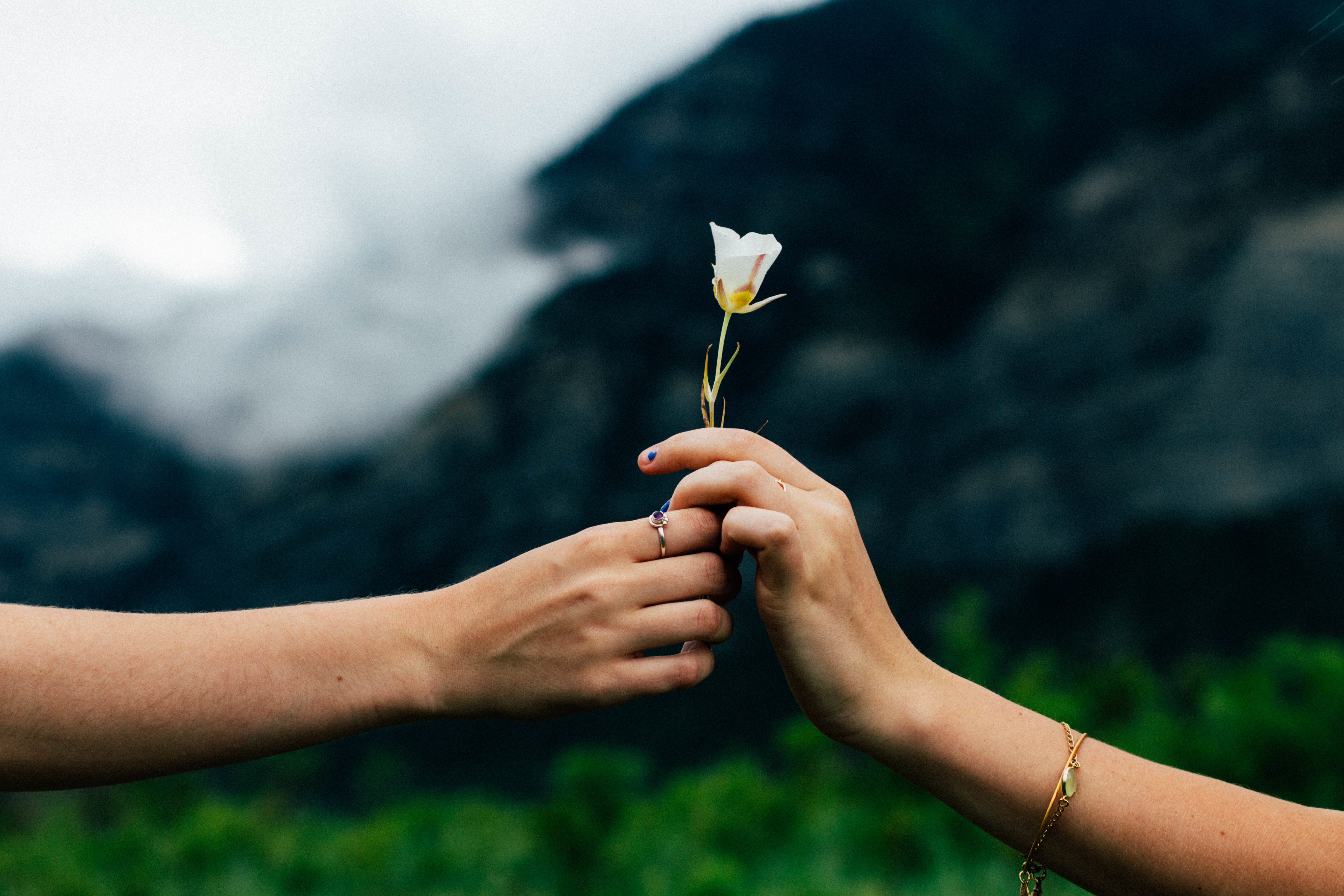Being in a successful, healthy relationship requires prosocial behavior. We must employ tools such as active listening, curiosity, giving the benefit of the doubt, assuming the best intentions, empathy, honesty, cooperation, and sharing. All of these actions sit under the umbrella of giving. Most of us are familiar with the saying “relationships require give and take.” Giving is an essential part of any relationship.
I’ve seen a lot of people who confuse giving with giving in. And the two have very different implications for a relationship.
Giving comes from a loving, strong, and often courageous place. When we give someone the benefit of the doubt, for instance, we’re allowing ourselves to trust, to be in a vulnerable position. We are not defending ourselves with skepticism or assumptions. We’re giving out of love and in doing so enriching our relationship.
Much can be given from such a loving, strong, and courageous place within ourselves- boundaries, empathy, second chances, forgiveness, patience. We can navigate our own limits of giving with more confidence and self-assuredness when we come from this place. We can teach cooperate, receive and give back. We can truly give.
But sometimes it’s hard to inhabit this place that lives within us. We feel drained or exhausted or alone or overwhelmed. We want to avoid the feelings we’re experiencing from the situation that’s causing us to have to decide what and how much we will give.
Most of us have been there. Most of us have found ourselves saying something like, “Fine, take the ice cream.” Or “Yeah, I’ll just do it. Whatever.” Instead of giving, we’re giving in. If we do this enough, we can build some pretty hefty resentment. We start to feel totally disempowered, that we have no voice (or that our voice doesn’t matter). We might even begin to assume that this is what everyone expects- for us to just give-in and soon we believe that everyone has an agenda. We start to feel defeated.
Some of us give in more than others. When we are afraid of confrontation, we give-in. Some of us do it because we’re afraid we’ll be rejected if we don’t. Some of us believe that that’s our role, to give-in endlessly. Some of us would have been hurt in the past if we didn’t give-in and defer to someone else, so we’ve learned to do it as a way to keep ourselves safe. Many of us give in because that’s what we’ve been conditioned to do; we don’t really recognize it as giving in.
A good way to check-in with ourselves to find out if we are giving or giving in is to pause and see what our intention is. Do we want to get this conversation over with or avoid a feeling we don’t like? We’re probably giving in. If we pause to take the temperature of our intention and our feeling, we’ll start to see how we feel when we are giving in and how different we feel when we are giving.
If we can, we should try not to judge ourselves (or others) for this. It’s something that happens. We get tired or overworked and make mistakes. So, every-so-often giving-in is bound to happen. We can keep an eye on it and make sure we’re keeping it in check because the less we give in and the more we give, the more we will serve our relationships.
I know it’s not always easy to change behavioral patterns. Identifying it is the easy part; changing it provides much more challenging work. I’d love to talk with you more about this if you have questions about it. We’ll figure it out together, little by little.
Love and Be Loved,
Natalie
